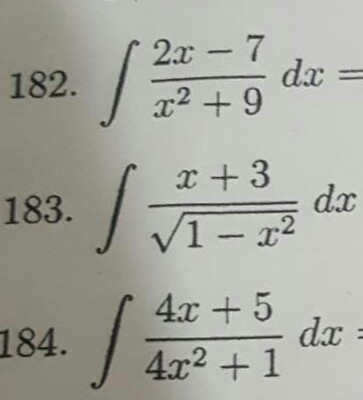
IntegrationQuestion and Answers: Page 247
Question Number 59168 Answers: 1 Comments: 0
Question Number 59167 Answers: 0 Comments: 0
Question Number 59165 Answers: 0 Comments: 0
Question Number 59163 Answers: 0 Comments: 0
Question Number 59162 Answers: 0 Comments: 0
Question Number 59161 Answers: 0 Comments: 0
Question Number 59052 Answers: 0 Comments: 0
Question Number 59050 Answers: 1 Comments: 0
Question Number 59040 Answers: 3 Comments: 0
Question Number 59012 Answers: 3 Comments: 0

Question Number 58940 Answers: 1 Comments: 3
Question Number 58937 Answers: 0 Comments: 2
Question Number 58791 Answers: 1 Comments: 0
Question Number 58774 Answers: 0 Comments: 3
Question Number 58770 Answers: 2 Comments: 1
Question Number 58717 Answers: 1 Comments: 1

Question Number 58648 Answers: 2 Comments: 4

Question Number 58639 Answers: 1 Comments: 0

Question Number 58627 Answers: 1 Comments: 3

Question Number 58626 Answers: 1 Comments: 1

Question Number 58595 Answers: 1 Comments: 0

Question Number 58488 Answers: 0 Comments: 2
Question Number 58487 Answers: 0 Comments: 3
Question Number 58478 Answers: 2 Comments: 1
Question Number 58319 Answers: 1 Comments: 0
$$\int{x}^{{n}} \left(\mathrm{ln}{x}\right)^{{n}} {dx} \\ $$
Question Number 58299 Answers: 1 Comments: 1
Pg 242 Pg 243 Pg 244 Pg 245 Pg 246 Pg 247 Pg 248 Pg 249 Pg 250 Pg 251
